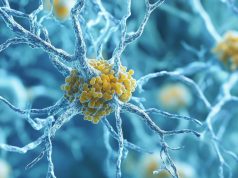Up to 32 percent lower risk conferred by early initiation, while increased risk for dementia seen in studies among older women
By Elana Gotkine HealthDay Reporter
WEDNESDAY, Sept. 24, 2025 (HealthDay News) — Estrogen therapy may reduce Alzheimer disease (AD) risk, with lower risk seen in association with early initiation, according to a study presented at the American Neurological Association Annual Meeting, held from Sept. 13 to 16 in Baltimore.
Kaliraman Vaibhav, M.B.B.S., from Pandit Bhagwat Dayal Sharma Post Graduate Institute of Medical Sciences in India, and colleagues conducted a comprehensive literature review including randomized controlled trials (RCTs) and observational studies comparing estrogen therapy to placebo or no treatment in postmenopausal women. The incidence of AD, conversion of mild cognitive impairment to AD, cognitive decline, and biomarker/neuroimaging changes were assessed.
The researchers found a significantly increased risk for dementia with estrogen therapy in RCTs conducted among predominantly older women (65 years and older; RR, 1.38), especially with combined estrogen-progestin regimens. A significant reduction was seen in AD incidence in observational studies, often including midlife initiators (RR, 0.78), with up to a 32 percent lower risk conferred by early initiation within five years of menopause. Heterogeneous cognitive outcomes and biomarker data were seen; emerging evidence indicated that timing critically modulated the neuroprotective effects of estrogen.
“The evidence isn’t strong enough to suggest hormone replacement therapy should be taken to prevent Alzheimer’s,” Vaibhav said in a statement. “However, if a woman is planning to use it for menopause symptoms, starting soon after menopause might give her brain some protection against Alzheimer’s disease later.”
Copyright © 2025 HealthDay. All rights reserved.








